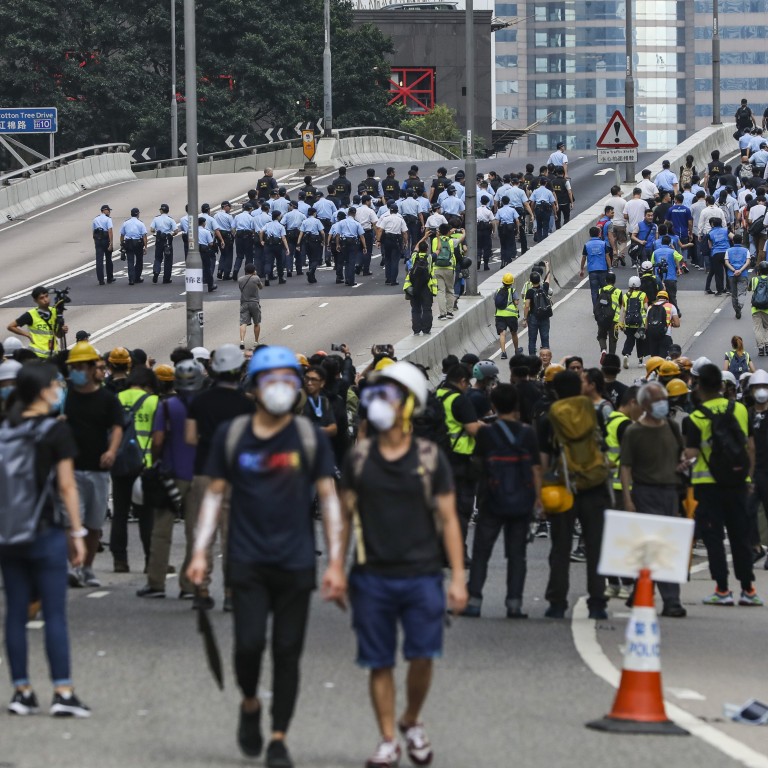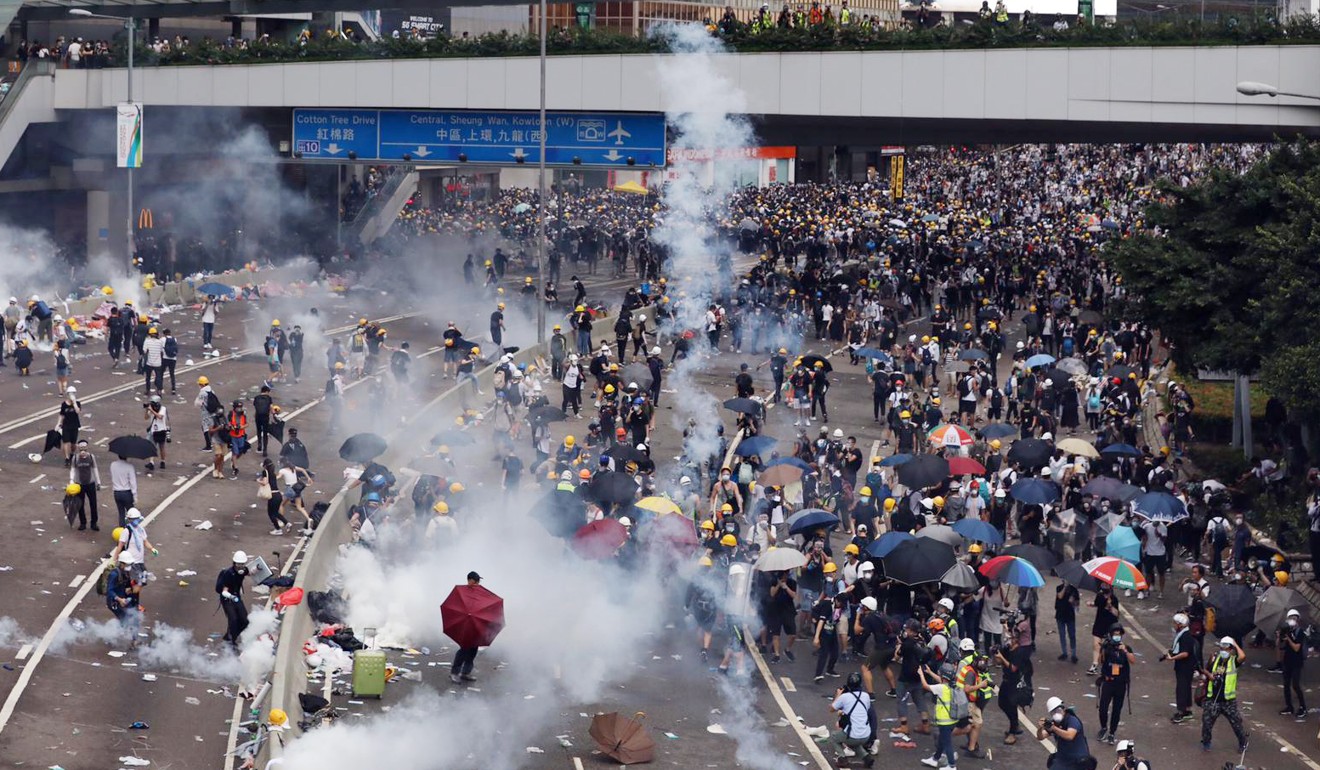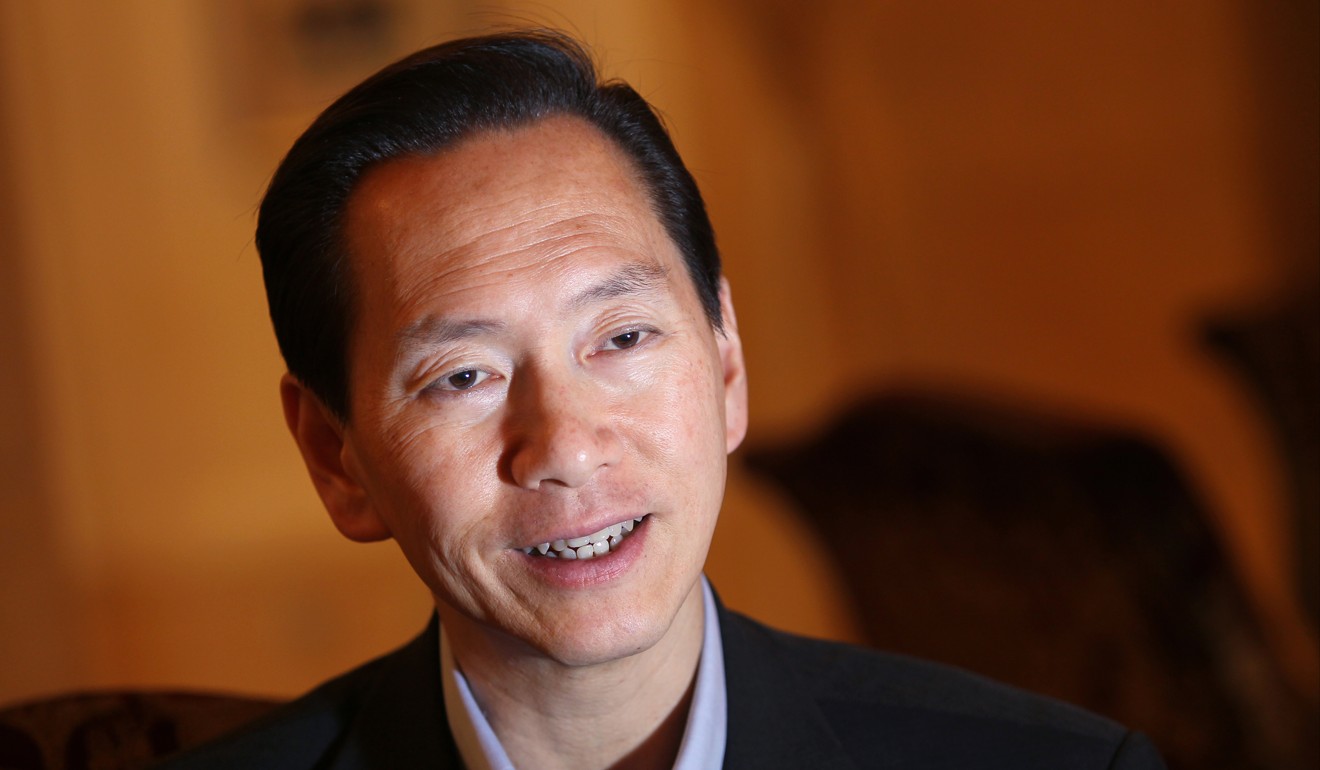
Hong Kong police chief Stephen Lo steps back from riot label as Carrie Lam keeps low profile
- Police commissioner clarifies that only those who attacked frontline officers with metal rods and bricks will be accused of rioting
- Hong Kong’s embattled leader stays away from the public eye but holds private meetings to reach out to educators and religious leaders
Stephen Lo Wai-chung on Monday clarified that only those who had attacked frontline officers with metal rods and bricks would be accused of rioting, while those who were not involved in such violence would not have to worry about riot-related charges.
“I did not mean that all those taking part in the protests that day were taking part in rioting,” Lo said. “And they need not worry that they could have committed riot offences.”

While a source said the remaining 17 protesters arrested for lesser offences were expected to be released, Lo insisted the core violence would continue to be treated as rioting.
Police adopt ‘softly-softly’ approach to cool tensions with protesters
Hong Kong’s embattled leader Carrie Lam, who had publicly backed police over the riot accusations, stayed away from the public eye on Monday but held private meetings to reach out to educators and religious leaders, and shore up support with senior officials.
Diehard opponents remained camped out on or by the side of roads surrounding the legislative and administrative headquarters in Admiralty, demanding that Lam scrap the bill altogether instead of just pausing it and that she step down for mishandling the issue, which has led to violent clashes between mostly young protesters and police.
Sources said she was keeping a low profile in the hope that people would calm down before she appeared in public again on Tuesday for an expected media session.
Others sources said Beijing remained staunchly behind her, with the bottom line that there should be no bloodshed on the streets of Hong Kong and that there was no question of allowing her to resign as that would make it difficult for the city’s future leaders.

Pro-Beijing veteran and former Legco president Jasper Tsang Yok-sing also weighed in, saying there was no viable candidate to replace Lam.
“It is simply wishful thinking to believe that someone better qualified, who enjoys greater confidence among Hong Kong people, better trust from Hong Kong people, can take her place if she steps down,” he said.
We have to think, after she resigns who will take over? We don’t want a bad chief executive replaced by a worse one
Former Bar Association chairman Edward Chan King-sang, a vocal critic of the bill, also warned that Lam’s departure would not solve the problem.
“We have to think, after she resigns who will take over? We don’t want a bad chief executive replaced by a worse one,” Chan said.
Sunday’s mass rally was a stunning repudiation of Lam’s governance and her handling of the bill, which would allow the transfer of fugitives to mainland China and other jurisdictions with which Hong Kong has no extradition deal. Many fear such an arrangement will leave Hongkongers at the mercy of a legal system they do not trust across the border.

On Monday, Executive Council heavyweights Bernard Chan and Joseph Yam Chi-kwong, put up a robust defence of Lam, pleading with the public to give her a second chance, and calling on Hongkongers to focus on her achievements over the past two years.
Hong Kong leader’s tough style blamed for fuelling protests
Chan, the Exco convenor, suggested that Lam would show more humility in light of the public backlash against her, saying she was “deeply remorseful” and reflecting on her mistakes in trying to push the bill through the Legislative Council without securing a greater consensus.
“It’s very regrettable that this one issue has overshadowed all the other great achievements that Carrie Lam and her government have made in the past two years, in economic, cultural and even tech policies,” Chan said. “I hope the public will give her a new chance in the next three years.”
Former de facto central banker Yam issued a statement expressing support for Lam to carry on in her post.

Teddy Tang Chun-keung, chairman of the Hong Kong Association of the Heads of Secondary Schools, said around 20 principals representing primary and secondary schools had met the chief executive in the morning.
Tang, who is also a school principal, said Lam had apologised repeatedly for her government’s inadequate handling of the controversy.
“Her face was subdued,” Tang said. “You could tell she had a heavy heart.”
In Beijing, foreign ministry spokesman Lu Kang made it clear that the chief executive’s resignation was out of the question, saying the central government fully acknowledged Lam’s work and would continue to support her.
Sources explained that letting Lam step down would make the situation even more turbulent and that abandoning her at such a critical moment would send “a very bad message” to future Hong Kong leaders and Beijing-backed officials.

On Monday morning, protesters who remained on the streets overnight after the Sunday rally packed up their gear and dismantled the barricades they had set up on main roads around government headquarters.
Police did not interfere, but by 5pm the crowd had swelled again, blocking all lanes of Lung Wo Road after a protest outside the Chief Executive’s Office, where they had been demanding a dialogue with Lam.
They were still digging in there late at night, debating whether they should escalate their action or back down for now.
Additional reporting by Gary Cheung


